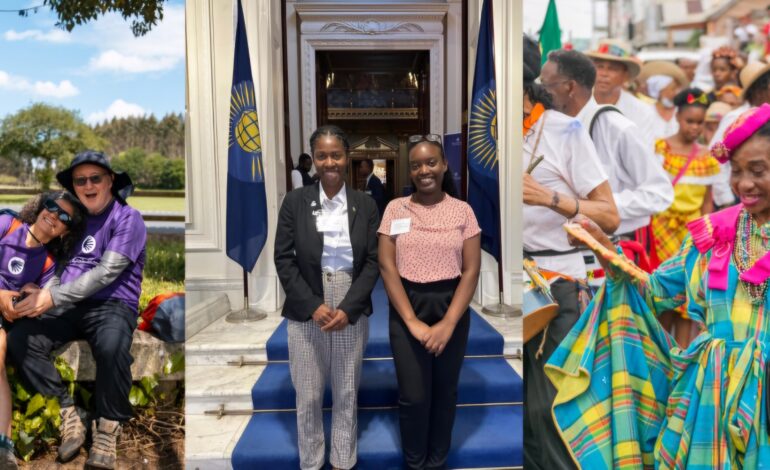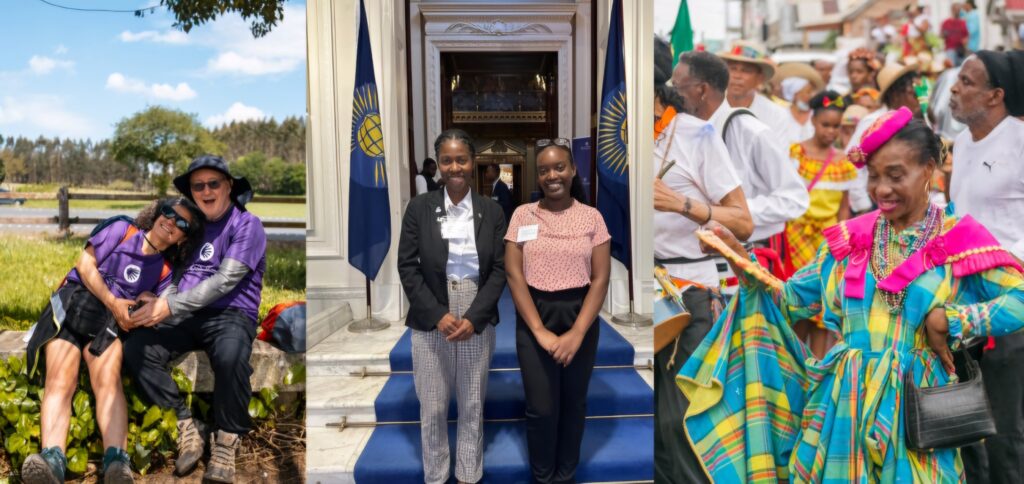
CommonAge, the Commonwealth Association for the Ageing, launched its Dementia in the Commonwealth report on Friday, 6 September 2024 at the International Dementia Conference, Sydney, Australia. Rianna Patterson, founder of the Dominica Dementia Foundation was also a key contributor to this report.
Key findings include:
- 59 per cent (33) of Commonwealth nations do not yet have a National Dementia Plan (NDP) or strategy in place.
- Only 11 per cent (6) of Commonwealth nations have a NDP in place.
- 19 per cent (10) of Commonwealth nations are in the process of developing a NDP.
- 11 per cent (7) for Commonwealth nations the status of their plan is unknown
- Communities and civil society are mobilising to create greater awareness and dementia friendly spaces to reduce isolation and discrimination.
- Health and care professionals are working in partnership with other key stakeholders to find new ways of providing culturally appropriate care and support.
- Entrepreneurs from the private and social sector, and committed enterprising individuals are also seeking solutions across key areas such as housing, residential care and technology.
- Shared challenges across the Commonwealth include the need to deal with the inequities in access to support, the workforce shortage and a requirement for a funding strategy.
Believed to be the first report on dementia focusing on Commonwealth countries, this pivotal publication delves into the current state of dementia care and support; it highlights disparities and challenges, best practices, and the urgent need for action to improve the lives of those affected by dementia.
With 2.5 billion people across the Commonwealth, it makes up over 33 per cent of the global population. The 56 Commonwealth countries are among the world’s biggest, smallest, richest and poorest countries; there are 21 Commonwealth countries in Africa, 8 in Asia, 13 in Caribbean and Americas, 3 in Europe, 11 in Pacific.
The report, which involved research and collaboration with experts, people living with dementia, healthcare providers, and carers from across the Commonwealth, also showcases successful models of care from across the Commonwealth that can serve as templates for improvement.
Rianna Patterson, a researcher at CommonAge says “It was an honor to contribute to such a significant report as this. The rich contributions from this report, positions dementia as a top priority and we had quite a few young people from the Caribbean and other regions share their work in this field. Dementia is an intergenerational conversation and I look forward to seeing the impact that this report makes.”
Dr Emma Hodges, Report Project Manager, chief editor and author, says: “There is a new case of dementia somewhere in the world every 3 seconds and there are currently estimated to be over 55 million people worldwide living with dementia, but it is difficult to measure the number in the Commonwealth due to the many challenges in getting a diagnosis.
“It is recognised that there are many competing priorities for governments, particularly for low and-middle-income countries, including water/sanitation, food distribution, climate change and education. However, this report is a call to action for all stakeholders across the Commonwealth to come together and address the growing impact of dementia.
“Alzheimer’s Disease International estimates by 2050, there will be 139 million people living with dementia, with the greatest increases in low- and middle-income countries.
“Despite the challenges, there are amazing examples of activities led by Civil Society and healthcare teams from across the Commonwealth highlighted in the report that demonstrate that by coming together and sharing knowledge and best practices, culturally appropriate solutions that enhance the quality of life for individuals living with dementia and their carers are possible for everyone.”
HammondCare Dementia Centre General Manager Angela Raguz says the report is a significant opportunity for the Commonwealth to share the expertise and resources that exist to improve the lives of people with dementia and their carers.
“Dementia is a complex condition and we need to plan for services based on the significant body of evidence and practice experience available,” Ms Raguz says.
“The international work of The Dementia Centre has shown that issues such as poor care home design, lack of staff training and fundamental pain management are just some of the issues that need to be addressed.
“As the Commonwealth turns 75 years of age, this report challenges us to consider the realities for its citizens in their 70s with dementia. I am looking forward to the opportunities for The Dementia Centre to collaborate with the many contributors to this report across the Commonwealth.”
In her Foreword, Dame Carol Black GBE, Commonwealth Secretary General’s Special Envoy for Ageing Well states: “I would like to commend CommonAge for providing this report, and for the contributors who have shared their experience and expertise for the benefit of all. The evidence of what works in practice, and what is being done in many countries to address the challenge, is encouraging and compelling.
“It is hoped that this report will support many policy makers within Health Ministries and across government departments to ensure a holistic approach to one of the greatest issues for societies.”
In her contributing article, Paola Barbarino, Chief Executive Officer, Alzheimer’s Disease International states: “We would like to thank CommonAge for commissioning this report at a time when policymakers and governments all over the world, regardless of the wealth of countries, seem to be neglecting this very issue.
“The report convenes those at the forefront of this effort, amalgamating policy, research, healthcare practice with national case studies from across the Commonwealth, highlighting the necessity for intersectoral and multilateral collaboration to address this global public health issue. Most importantly, the report includes the voice of those with lived experience, reminding us that the outcomes of policy have a direct and tangible impact on those living with the condition.”
This report will be essential reading for anyone involved in health policy, health, care and community development, service delivery and everyone who wants to find out what they can do for themselves, each other and their community.
Dr Emma concludes: “We are exceedingly grateful to partners, sponsors and collaborators for their generous support in this publication.
“Together, we can work towards a future where individuals living with dementia receive the care, respect, and support they deserve.”
The report is available for free online at www.commage.org from 6 September 2024.






